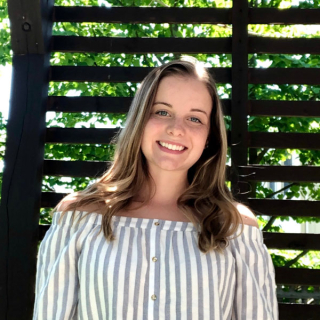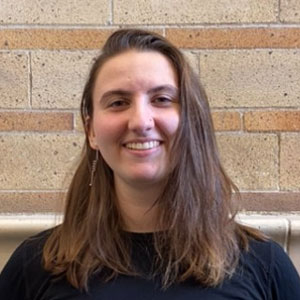Making the world more sustainable is a top priority for students and researchers across the University
So it’s fitting that a marquee initiative of McGill’s bicentennial celebrations is a Student Sustainability Challenge that aims to turn students’ ideas into innovative projects with real-world impact.
Some 44 teams -- each composed of three to six members -- registered and submitted proposals late last year for the challenge, known as impact200. In January, 22 of those teams were selected as semifinalists.
Each proposal addresses one or more of the United Nations’ 17 Sustainable Development Goals, which are designed to end poverty, protect the planet, and improve lives. The semifinalist proposals run the gamut from a program to improve science literacy in underfunded high schools, to a re-invented toothbrush for everyday oral healthcare, to the creation of green rooftops to save on heating and reduce the urban heat-island effect in Montreal.
The semifinalists presented their pitches in mid-March to a judging panel. At the end of the month, the panel will select up to 10 finalist teams. Each team will get up to $5,000 and expert mentors to help develop a proof-of-concept during the summer. Team members will also receive a stipend for living expenses.
Student advisory team
Students played a key role in developing impact200, as they have in shaping other campus sustainability initiatives. (The Sustainability Projects Fund, created in 2009 as a partnership between McGill’s student societies and the University, is the largest fund of its kind in Canada.)

A student advisory team came up with the ‘impact200’ name for the challenge, and worked closely with a committee composed of several collaborators from across the University, including the McGill Sustainability Systems Initiative. MSSI members suggested using the UN Sustainable Development Goals as a framework for impact200, says Ricarda Haeger, Executive Director of the student advisory team. The students, in turn, generated the idea of using the SDGs to tag the teams and mentors -- helping to determine which students to connect with which mentors, says Haeger, a PhD student in Kinesiology.
Other institutional groups collaborating on impact200 include the McGill Dobson Centre for Entrepreneurship, the McGill Office of Sustainability, and representatives of the Faculty of Agricultural and Environmental Sciences. “It’s a whole-of-university effort,” says Gerald Cadet, Director of McGill’s Bicentennial team, which organized the collaboration.
Using the SDGs as a framework helped to spur proposals from students in a wide variety of disciplines. “We really, really wanted to make sure that people were aware that they could be from any background,” says Ellen Ferguson, VP Marketing and Communications for the student advisory group. “So we were trying to market in different faculties, to get really diverse groups and make sure that people knew it wasn’t just Environmental students -- it could be anyone.”
Early on, the marketing was done in person. The advisory group staffed information tables at activities night, at the library, and outside big lecture halls. When the pandemic shut down on-campus events a year ago, the team pivoted. “Everything moved online,” Ferguson says, and the outreach campaign suddenly became all virtual, with webinars organized to spread the word.
The effort paid off. “The teams look really diverse, which is what we wanted,” says advisory group member Michelle Pelletier.

“There are definitely motivated students behind all of those projects,” adds Ana Duran, VP Internal for the advisory group. “Hopefully they will have a lot of resources to implement them,” says Duran, who is in the final year of her undergraduate program in Anatomy and Cell Biology.
Hands-on learning
For members of the advisory team, impact200 has already proved to be a valuable learning experience.
“It was really interesting to see how a project of this size comes together,” says Haeger. “I’m sure all of us had experience in organizing an event here or there, but it was interesting to see how the different parts of McGill, internally, work together.” Haeger, originally from Germany, has been wrapping up her PhD thesis and has a job lined up as a project manager for a hospital in Vancouver.

Ferguson was majoring in Biology and minoring in Environmental Science when she joined the impact200 team. “Working on this project and seeing how interested students were, as well as seeing how much faculty also are interested in sustainability, made me want to continue on that path.”
She graduated last year and now works on the sustainability team of a facilities-management company in the Toronto area. “I’m seeing now that there are a lot more job positions out there now around sustainability,” she says. “Every company is now opening up to sustainability, which is really exciting.”
Bright spots

Michelle Pelletier, VP Logistics for the advisory group, is a second-year Civil Engineering student. Her takeaway from working on impact200: “We should listen to all stakeholders in a project, especially when considering environmental impact. I think it’s important to have a holistic approach, and to actually see different sides of every problem, to see how we can solve it together.”
The goal of impact200 is to turn ideas of students and recent alumni into “bright spots” of the sort that Professor Elena Bennett has been cataloguing. Bennett, the Canada Research Chair in Sustainability Science, is co-founder of “Seeds of a Good Anthropocene,” an international collaboration that has been crowdsourcing a database of projects -- many of which may appear small, but which have the potential to yield transformational change for a better future.
At the impact200 official kickoff event last September, Bennett told students she’s been looking recently at the growing collection of bright spots on our own campuses. “It turns out that there are bright spots at McGill in all of the five domains that we consider as important things that we do: research, teaching, governance and administration, operations, and in the connectivity among them,” she said. “impact200 is giving us a chance to create a place where even more of those bright spots can emerge.”
